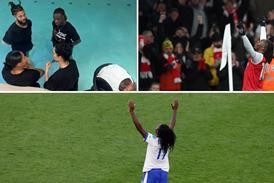News Analysis: Iraq in crisis
By Rev Mark Woods2014-07-09T00:00:00

Christians and Shia Muslims face extreme danger in war-torn Iraq.
More from Home
-
 Archive content
Archive contentVicky Walker
2021-04-01T00:00:00Z
Vicky Walker is a writer and speaker, among other things. She writes about life, arts and culture, faith, and awkward moments in the form of books, articles, stories, and more, and she tweets a lot.
-
Archive content
Tom Holland
2021-04-01T00:00:00Z
Tom Holland is an award-winning historian, biographer and broadcaster. He is the author of a number of books, including most recently, Dominion: The making of the Western Mind (Little, Brown). He has written and presented a number of TV documentaries, for the BBC and Channel 4,on subjects ranging from ISIS ...
-
Archive content
Tola Mbakwe
2021-04-01T00:00:00Z
Tola Mbakwe is a multimedia journalist for Premier.
- Issues
- Topics A-Z
- Writers A-Z
- © 2025 Premier Christianity
Site powered by Webvision Cloud
























